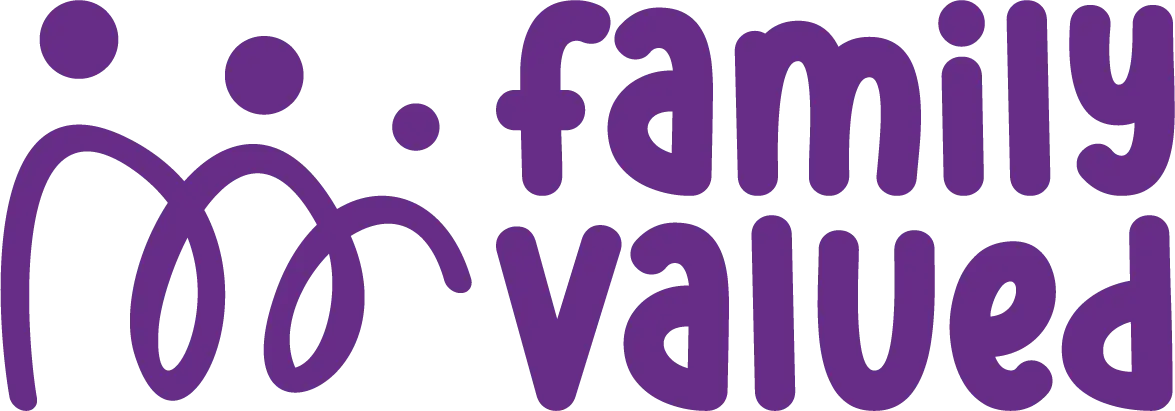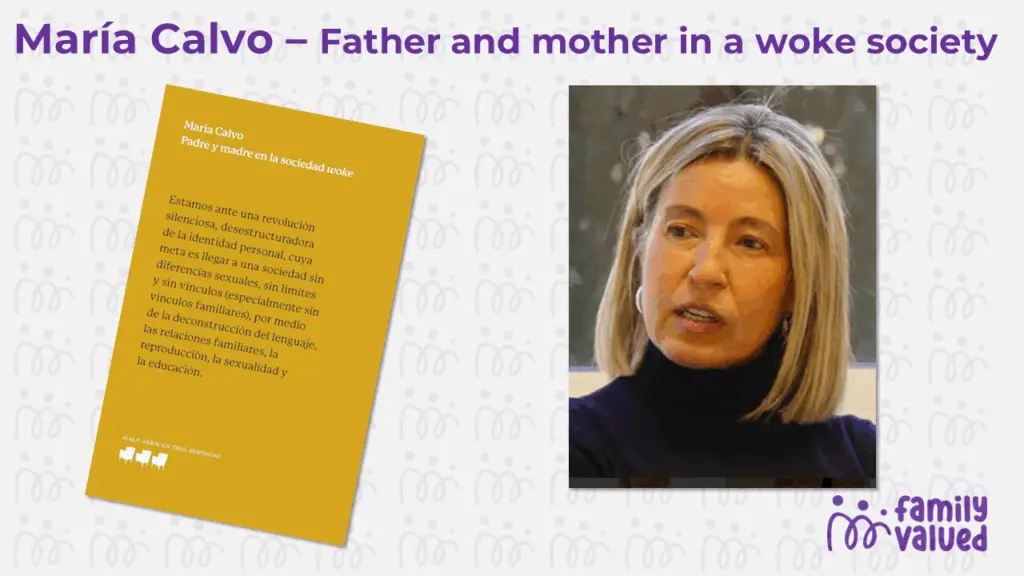María Calvo has spent many years working on issues concerning the family, writing numerous books and giving lectures on the subject. Drawing on this experience, she analyses in this book the new trends within families in a postmodern society, which she refers to as “Woke”.
She speaks of an erosion of reason, transcendence, sexual (gender) difference, fatherhood and motherhood. She argues that the devaluation of traditional notions of freedom, love, family and gender complementarity has led to identity crises, educational imbalances, relational deficits and a “crisis of love”. Her central thesis is that the uncoupling of sexuality, fertility, commitment and a transcendent orientation to meaning produces narcissistic forms of subjectivity, delegitimises fatherhood and marginalises motherhood, generating not only individual but also structural psycho‑social harm. The proposal is: the rehabilitation of reason, moral commitment, the differentiation of the sexes and complementary parental functions.
Reason, Freedom and Transcendence
The text opens with the claim that abandoning reason leads to “dehumanisation”: the human being degenerates into a creature driven by impulses and loses self-mastery (Marín 2013). Contemporary practices of freedom are interpreted as a paradoxical self-contradiction: in the name of boundless freedom, they destroy the conditions of freedom exercised under personal responsibility (Kuby 2017). The exclusion of a transcendent horizon weakens normative boundaries, so that what is technically feasible appears morally permissible (Benedict XVI).
Identity Politics, “Woke” Discourse and the Crisis of Masculinity
Identity-political currents such as “woke ideology” are characterised as a paradigmatic shift from logics of equality to logics of retribution. They are said to postulate a collective atonement for the male past by delegitimising traditional male behavioural patterns as “toxic”.
Pedagogical and Educational Issues
The text refers to empirical studies (including PISA) to assert an educational crisis among boys: poorer reading and writing skills, weaker attachment to school, higher incidence of behavioural problems, lower completion rates. When public debates portray masculinity primarily as something flawed or harmful, this can unsettle many men and diminish their inner drive.
Fatherhood as a Structuring and Differentiating
Instance Central is the thesis that fatherhood has an irreplaceable function: it confirms masculinity to the son and helps the daughter to experience femininity by contrast (Schlatter 2019). Drawing on psychoanalytic and depth-psychological motifs, the father is described as an agent of separation, freedom and “defusion” from the mother–child dyad. His absence leads to identity diffusion, increased vulnerability and social dysregulation.
Motherhood within an Ideological Framing
The author highlights a “radicalised anti-maternal” variant of feminism that interprets motherhood as a structural obstacle to female self-realisation. The shift analysed extends from the 1950s ideal of the idealised housewife to today’s relativisation of motherhood. This produces a perspective that treats the body and reproduction primarily as something to be planned and interprets the child in a strongly functional way: either as a means of one’s own identity formation or as an additional burden.
Abortion and Female Identity
Abortion wounds women emotionally once and for all. Drawing on an experiential account (Naouri 2005) it is asserted that this holds for all women. Thus, anyone who supports abortion is said to be exercising a form of violence, because this runs counter to the woman’s natural will to life.
Anthropology of Complementary Difference
The text advocates a complementary model of parental roles: paternal and maternal styles are viewed as not interchangeable but mutually balanced. Love is functionally defined as the conscious orientation toward the good of the other, detached from merely spontaneous feelings. Freedom appears as self-appropriation through self-giving (Marín 2013). A modern narcissistic individualism is diagnosed that interprets attachment as a limitation rather than as the basis of personal flourishing.
Socio-ethical Proposals
• Elevation of the role of fatherhood in public and family discourse
• Structural support for reconciling family and work
• Cultural “maternalisation” of an eroded society
• Reopening to transcendence as the semantic framework of moral boundaries
Conclusion
The argument presented calls for a reconstruction of Western family culture normatively grounded in transcendence, attachment and sexual difference. It understands fatherhood and motherhood as structuring, non-interchangeable axes of personal and social stability and interprets individualistic narratives of autonomy and equality as destructive insofar as they negate attachment, fertility and complementary roles.
References
Kuby, Gabriele (2017). Die globale sexuelle Revolution. Zerstörung der Freiheit im Namen der Freiheit. (Neuaufl./Erw. Ausg.; Erstaufl. 2012). Sankt Ulrich Verlag.
Bly, Robert (1990). Iron John: A Book About Men. Addison-Wesley. German edition: Eisenhans. Ein Buch über Männer.
Rosin, Hanna (2012). The End of Men and the Rise of Women.
Riverhead Books. German edition (2013): Das Ende der Männer. Warum unsere Jungs so verzweifelt sind.
Murray, Douglas (2020). The Madness of Crowds: Gender, Race and Identity. Bloomsbury (paperback/current ed.). (First ed. 2019; German translation 2021: Wahnsinn der Massen.)
Naouri, Aldo (2005). Les pères et les mères. Odile Jacob.
Jaggar, Alison M. (1977). Political Philosophies of Women’s Liberation. In: Feminist Frameworks (collected volume / article).
Author
Dr Karl-Maria de Molina
CEO & Co-Founder ThinkSimple.io
Project Lead and Board Member Family Valued

